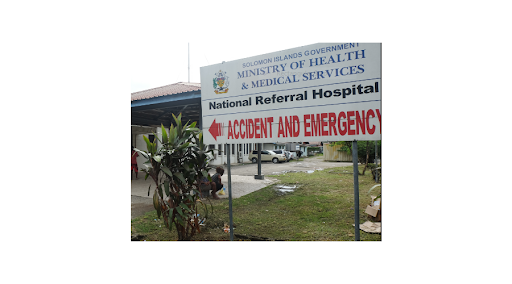A letter in the Island Sun newspaper this morning, Friday, written by Stephen Howes a Professor of Economics at the Development Policy Centre at the Crawford School in Australia, mentioned the riots in Honiara last week and said the civil unrest had thrust the Solomon Islands into the international spotlight.
He went on to write about the possible causes of the riots, and I will quote a few of his words.
Quote.
A useful source is the public opinion survey conducted by the survey firm Tebbutt Research in April and May of this year on behalf of an international NGO, the National Democratic Institute, with funding from USAID. Tebbutt surveyed 1,249 randomly selected Solomon Islanders by phone, using local interviewers, in English and Solomon Island Pidgin. (According to the report, mobile phone penetration in Solomon Islands is 77%, and the survey had a response rate of 62%. Quotas based on province, gender, and age were used.)
A lot of the questions were about COVID-19, and those responses have already been analysed on this Blog. Given what has just happened, the more general questions are now of greater interest.
To start with the most general, 66% of respondents thought their country was heading in the wrong direction. Only 18% said it was going in the right direction. Solomon Islanders aren’t the only people to be negative about their future, but a figure of 18% does put them at the pessimistic end of the international spectrum.
Respondents were also asked whether things were getting better or worse in relation to a number of specific issues. Corruption and unemployment headed the list of concerns, with “getting worse” responses exceeding 90%, followed by land, cost of living, and violence against women, where such responses exceeded 80%. Access to basic services and schooling were the only areas whereas many people felt things were getting better as they did getting worse.
People were asked about the most important issues for the government to address. Unemployment was the most popular response (36%), followed by the cost of living (27%) and corruption (26%). Climate change didn’t rate.
There were quite a few questions about corruption. 70% of respondents thought the government was doing a poor or not-so-good job-fighting corruption.
Respondents also had to rate different institutions in relation to their corruption concerns. 94% were very or somewhat (mainly very) concerned about corruption in the Constituency Development Funds, the money given to each MP to spend in their electorate (and one of the largest such schemes in the world). Parliament followed second with 91% concerned about corruption there, forestry third with 89%.
End of quotes.
Professor Hughes had other concerns, but I suggest readers turn to the Solomon Times Online for further extracts from his article.
My reasoning for ending his rather lengthy article at this point is to focus particularly on this extract of his piece.
“People were asked about the most important issues for the government to address. Unemployment was the most popular response (36%), followed by the cost of living (27%) and corruption (26%). Climate change didn’t rate.”
All three issues raised I would agree are vitally important issues for government attention, but I would like to raise another concern and say why I think it necessary to be concerned.
Yesterday, a young 16-year-old child, whose name was Linda, from East Guadalcanal passed away from a heart condition while having waited for months to be transferred to an Australian hospital for life-saving medical attention and surgery.
The news of Linta’s untimely passing shook me to the core since I had been very much involved with support of the SFA in getting the funds for her full medical costs at St George’s Hospital in Sydney,
The funds were guaranteed and travel visa in hand via the Australian High Commissioner.
Alas, the young child passed on before paperwork was completed.
Linda was only many of the patients in the care of the National Referral Hospital (NRH) suffering from heart conditions that linger on while waiting for a transfer offshore for treatment and surgery that presently seems available to those with the financial means, or those in positions of power or privilege. Very sadly, I know those patients without the means or status die prematurely but could be saved if only they could get the medical attention on offer to them in caring hospitals such as St George’s where cardiologists give early medical attention free of charge.
To add to the three major concerns Professor Hughes highlighted and which I have singled out, I want to say that concern for the medical needs of patients at the NRH suffering from heart conditions that can be helped, given a transfer offshore to where medical attention not available in the Solomon Islands, is available is a serious issue that should concern us all
I know the current Medical Superintendent at the NRH, Dr, Janella Solomon is rightly concerned about the situation I have outlined and is hoping to see MHMS budgets with sufficient funds to see patients like Linda get referred for outside medical attention sooner.
I hope, too, the processing of visas and the paperwork necessary for a medical referral to Australia can be much better facilitated and quicker by the Australian Government’s Department of Foreign Affairs.
I offer my sincere condolences to Linda's parents, family members, friends, to all who had Linta in their care at the NRH, to the SFA, to those who collected money via street collections, and to the Sydney based cardiologist who was standing by to have received Linta and give her treatment.
Yours sincerely
Frank Short



